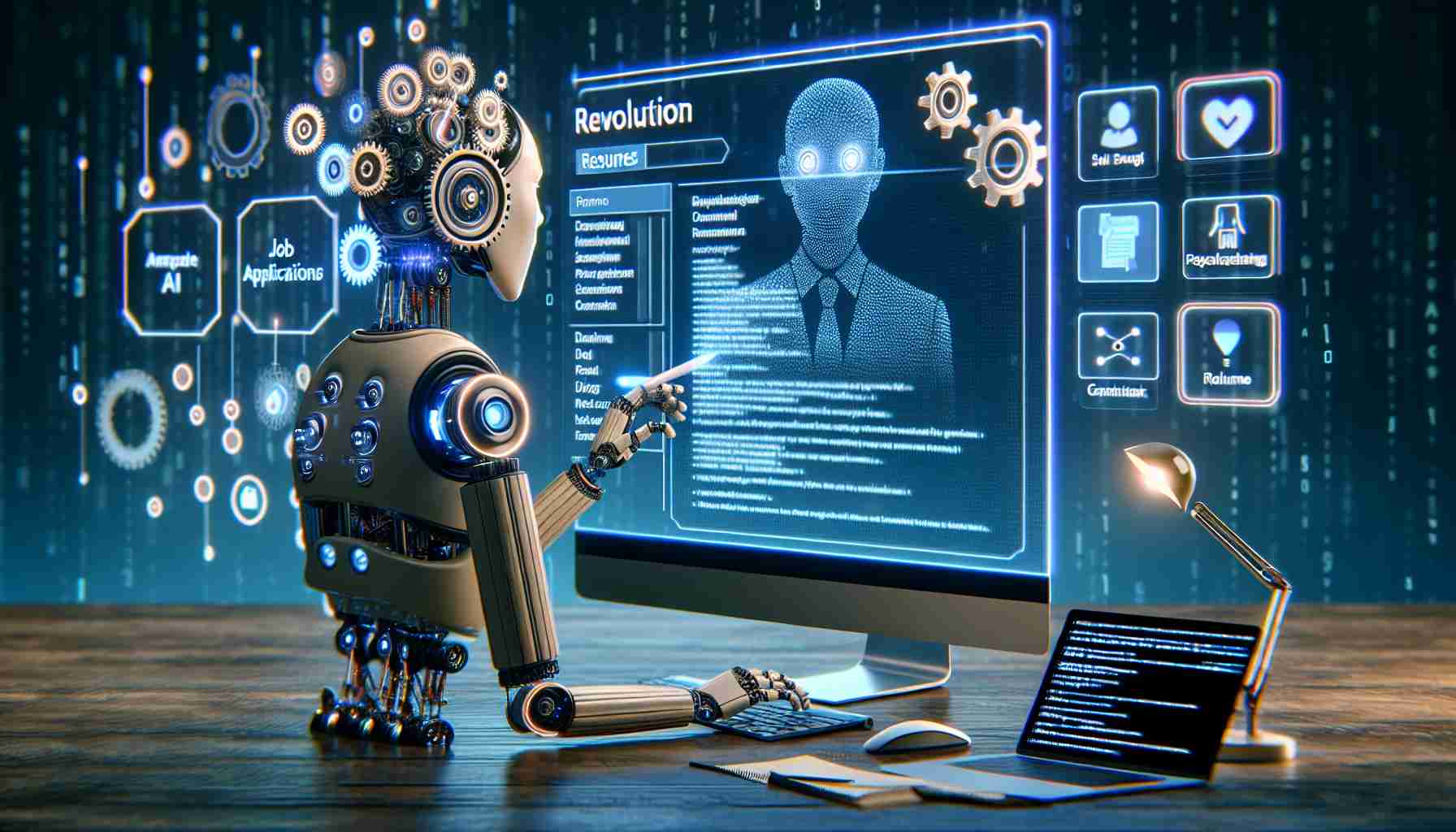Job application processes can be a daunting task for many, often due to the time-consuming nature of compiling application documents. Despite the rise of professional networking platforms like LinkedIn, companies still hold a high regard for cover letters and resumes. Indeed, the impact of these documents can vary from company to company, but as a rule of thumb, the more compelling the application, the likelier the chance of scoring an interview.
To alleviate the stress of this process, countless apps with dedicated services have emerged. Following the wave of interest in ChatGPT-like AI, many job application aids are now leveraging generative artificial intelligence. Their capabilities range from drafting text, structuring sections, to embedding relevant keywords within documents, catering to the nuanced requirements of different firms.
One standout AI application is Applai.me, founded by the young innovator Konstantin Lobanov, who understands that many documents painstakingly put together by job seekers may ultimately be overlooked or filtered through company algorithms. Cover letters, for example, are one of the most time-consuming elements of an application and yet are only glanced at by a fraction of employers. Recognizing this challenge, Applai.me and similar AI-driven platforms are positioned to transform the traditional approach to job applications, making it more efficient and aligned with the digital screening practices of contemporary hiring processes.
AI-Powered Tools in the Job Application Process
AI-powered tools in the job application process have surfaced as solutions to several pain points faced by job seekers. For instance, tailoring one’s resume and cover letter for different job applications can be complex and time-consuming. AI can help by analyzing job descriptions and suggesting specific skills and experiences to highlight, optimizing the application for applicant tracking systems (ATS) that many companies use to screen candidates.
Most Important Questions:
– How do AI-powered tools ensure the uniqueness of each resume and cover letter they help create?
– What is the accuracy of these tools in understanding and incorporating industry-specific jargon?
– How do AI-powered tools maintain privacy and security of users’ personal and professional information?
Answers:
– AI tools often use sophisticated natural language processing to generate unique content, but users should always customize the final output to ensure it accurately reflects their personal experience and skills.
– The accuracy can vary; more advanced tools are trained on vast datasets including industry-specific jargon, but it’s still advisable for users to review and tailor the suggested content.
– Most reputable AI-powered tool providers implement strict data security protocols, but users should review privacy policies and data handling practices to ensure their information remains secure.
Key Challenges:
– Authenticity: Keeping a personalized touch in resumes and cover letters is critical. There’s a risk that reliance on AI could lead to generic-sounding applications.
– Acceptance: Employers may have varying opinions on the use of AI tools for applications. Some might value the innovative approach, while others could prefer traditional, personally crafted documents.
– ATS Alignment: While AI tools can optimize applications for ATS, overly optimized or keyword-stuffed resumes might be rejected or viewed unfavorably by human reviewers following the ATS screening.
Controversies:
– Job displacement fears: One concern is that AI tools could eventually automate more facets of job seeking, potentially leading to reduced roles for human HR professionals and resume writers.
– Ethical considerations: The extent to which an application represents a candidate’s own effort versus the capabilities of AI can be a grey area, potentially raising ethical questions.
Advantages of AI-Powered Tools:
– Efficiency: AI tools can significantly reduce the time needed to tailor job applications.
– Optimization: These tools can optimize resumes and cover letters to pass through ATS, potentially increasing the chance of landing an interview.
– Accessibility: AI tools may level the playing field, giving less experienced job seekers the ability to present polished, professional application documents.
Disadvantages of AI-Powered Tools:
– Over-reliance: Applicants may become too dependent on AI, neglecting to learn valuable skills for crafting applications.
– Homogenization: There’s a risk that resumes and cover letters could become too similar, making it harder for individuals to stand out.
– Accuracy issues: AI tools might not always grasp subtleties or context-specific needs, which can result in inaccuracies or irrelevant content.
For those interested in exploring AI-powered job application tools, here are some related links:
– LinkedIn
– Indeed
– Glassdoor

